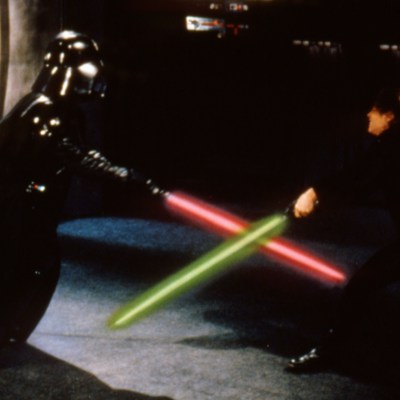Star Wars TV Shows Ranked From Worst to Best
With seven shows now out on Disney+, it's time to rank the Star Wars live-action series!
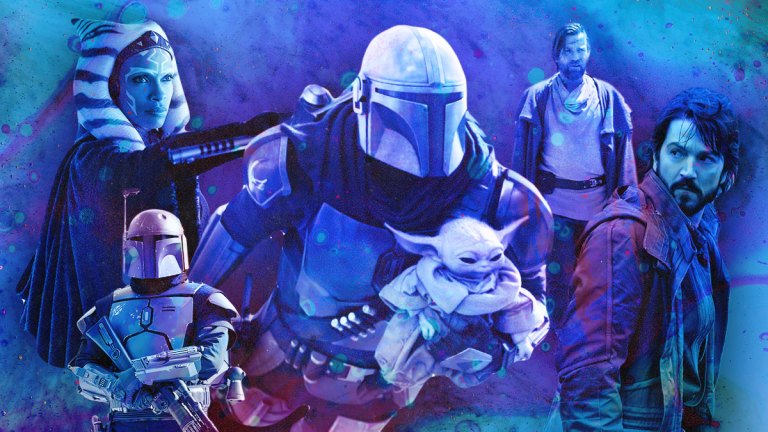
This Star Wars article contains spoilers.
In 2019, The Mandalorian kicked off a new era of Star Wars live-action storytelling on the small screen and the saga hasn’t slowed down since. From Mandalorian spinoffs The Book of Boba Fett and Ahsoka, to jumps back in time for Obi-Wan Kenobi, Andor, and The Acolyte, to exploring uncharted territory with a new generation of heroes in Skeleton Crew, the franchise has expanded beyond the movies to explore new characters, eras, and settings in the serialized format that first inspired George Lucas to make Star Wars.
This all means that Star Wars fans are absolutely spoiled for choice on Disney+, but which live-action TV series is best? We’ve ranked the good, the bad, and the scruffy-looking nerf herders of the lot.
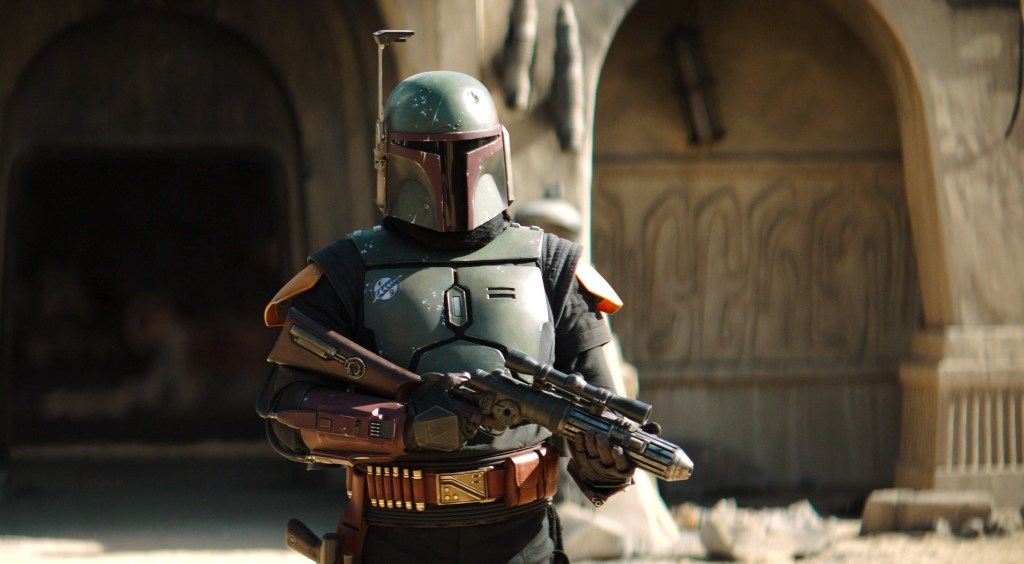
7. The Book of Boba Fett
Boba Fett made his triumphant return to live action in 2020 on The Mandalorian before jumping into his own series about taking over Jabba the Hutt’s former territory. On paper, the galaxy’s deadliest bounty hunter becoming its most dangerous crime lord might seem like a dream come true, but in execution, The Book of Boba Fett amounts to little more than a series of side quests on cheap-looking sets. And that’s when Boba Fett is actually allowed to star in his own show.
Stripped of any real grit or bite, and largely relegated to board meetings, taking naps in a bacta tank, and running errands around Tatooine, Boba doesn’t get all that much to do as the new daimyo of Mos Espa, and the flashbacks that tell us how the bounty hunter survived the ordeals that followed his demise in Return of the Jedi never really surprise but instead overexplain. Despite one or two memorable action sequences, including one featuring a baby rancor, the show just never really gets going—except when its protagonist is unceremoniously ushered off the stage completely so that the series can follow up on a largely unrelated story about different characters, a choice that remains one of the biggest head-scratchers of the Disney era. Boba Fett and star Temuera Morrison, who is as charismatic as ever in spite of the questionable material, deserved much better than this book.
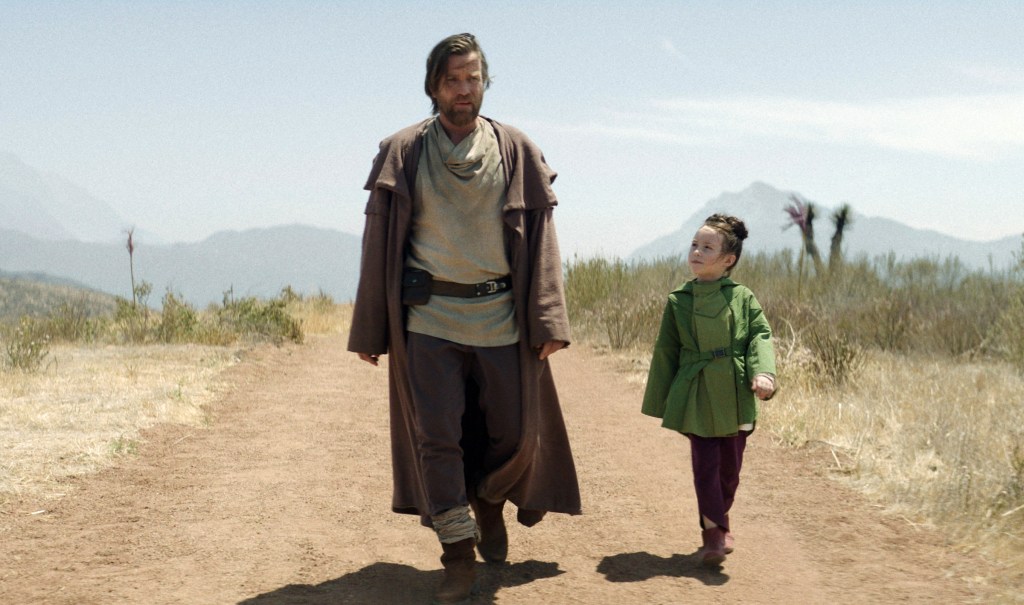
6. Obi-Wan Kenobi
This continuation of Obi-Wan Kenobi and Anakin Skywalker’s stories was a highly-anticipated event for a generation of Star Wars fans who grew up with the Prequels. Seeing Ewan McGregor and Hayden Christensen back in their respective roles certainly pulls at the heart strings, but Obi-Wan Kenobi falls short of the epic scale one would expect from such a big reunion. The show plods along for its first couple of episodes, with the action and Obi-Wan sulking taking place on surprisingly artificial-looking sets that never live up to the standard of the other Disney+ shows. The cave sets on Jabiim have a particularly distracting styrofoam quality, while the final showdown on a fog-covered wasteland makes it painfully obvious this is all unfolding on a Lucasfilm soundstage.
All that said, Obi-Wan Kenobi has some top-notch performances from McGregor, Christensen, and especially newcomer Moses Ingram. She plays an Inquisitor named Reva, who you may or may not end up rooting for by the end. Bringing in Vivien Lyra Blair as a younger, energetic Princess Leia to pal around with a battered and depressed Old Ben came off as cheap sentimentality and nostalgia to some (seriously, your mileage may vary with this Star Wars series in particular), but we’d actually call it a stroke of genius. It’s Obi-Wan’s relationship with little Leia that ends up being the emotional hook of the show. And you get some scary moments with Darth Vader as a bonus.
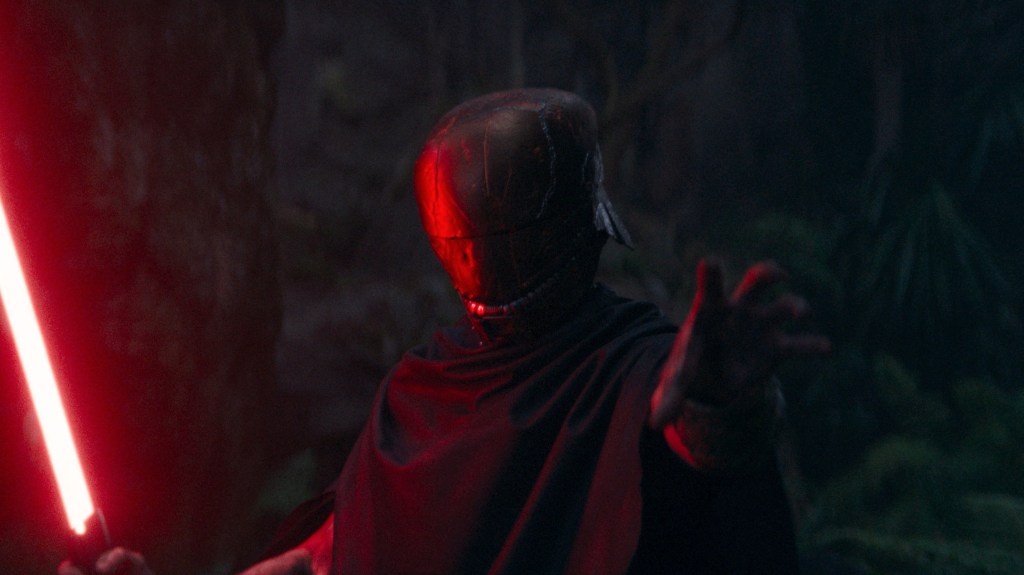
5. The Acolyte
The first Star Wars series set before the Prequel Trilogy is at its very best when exploring the mysteries of the Sith and laying the groundwork for the eventual fall of the Jedi Order. The Acolyte also introduces an absolutely captivating new villain in The Stranger, whose enigmatic past is as tied to the Jedi as it is to another Sith of legend: Darth Plagueis, who makes his official onscreen debut in the finale. All the while, the show raises intriguing questions about the Sith, their history, and how they see themselves and their place in the galaxy. The Acolyte finally delivers the fresh and nuanced perspective the galaxy’s greatest villains have needed for far too long.
Unfortunately, the good aspects of the first season are bogged down by the uneven tone and pacing of the storytelling as well as underwhelming revelations. So much of the show’s central mystery, about the true origin of two powerful twins played admirably by Amandla Stenberg, rests on events from the past in flashback episodes that don’t quite stick the landing, while the darker mystery-thriller story the show sets out to tell never quite gels with Star Wars‘ trademark light-hearted approach. Even strong performances from Lee Jung-jae, Manny Jacinto, and Dafne Keen can’t quite make up for the tonal dissonance that runs through this series.
All that said, this series showed a lot of promise, especially where it leaves The Stranger, Osha, and Mae at the end. The Acolyte is also responsible for the very best lightsaber duels we’ve seen on Disney+, including in an episode-long fight sequence that goes down as one of the best hours of Star Wars TV ever. Combat between the Jedi and Sith has never looked as brutal as when The Stranger schooled a whole squad of trained Jedi in the power of the dark side. It’s just too bad we’ll never get to see where things might have gone next for The Acolyte, as the show was eventually canceled by Disney, leaving things on a cliffhanger.
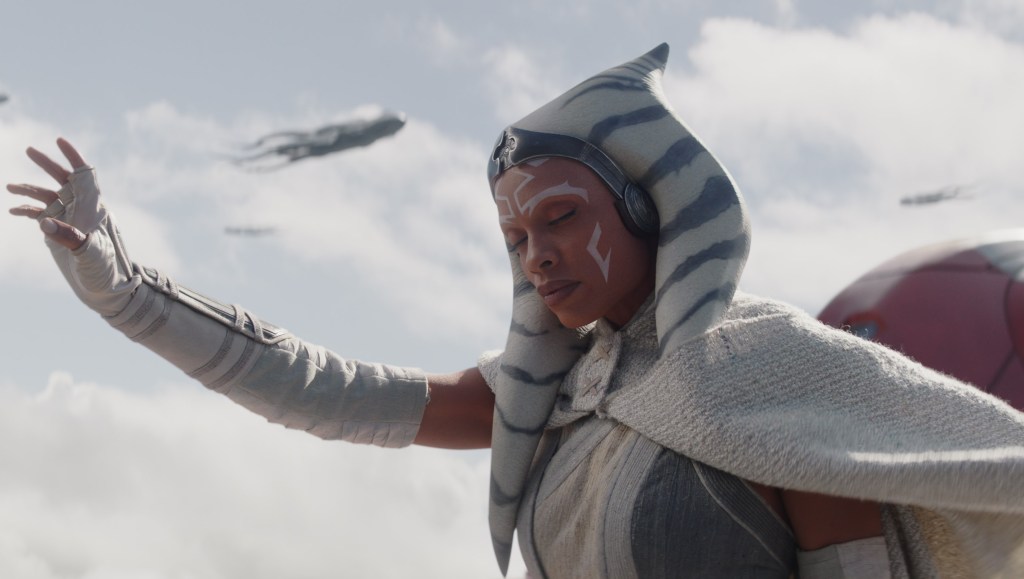
4. Ahsoka
Ahsoka is certainly not lacking in big ideas—evil Force witches, zombie stormtroopers, new galaxies, and even time travel from a certain point of view—or nostalgia for the Star Wars stories that came before. But, while it’s an entertaining watch overall, especially if you’ve tuned into the Rebels animated series and read the old Legends novels starring Grand Admiral Thrawn, and does eventually push the story of the Mandoverse forward, it makes many of the same mistakes as some of its predecessors.
For one thing, Ahsoka never actually feels like it centers its main character or interrogates her feelings about anything—a common issue across most of the recent Disney+ shows. The series also suffers from “eight-part movie syndrome,” with several episodes ending abruptly (or really not at all) or slowing down to a crawl because they’re in no real hurry to get to the interesting bits. And when the show does reach its big turning point on Peridia, the reunions and rematches do feel a tad underwhelming after six episodes of build-up.
Still, there’s a lot to like in what showrunner Dave Filoni has cooked up, including plenty of references to The Lord of the Rings, mystical planes, and even a few Force gods. Star Wars has also found an absolute star in Natasha Liu Bordizzo, who’s all but stolen the show by the third act. You may at first tune into this show for Ahsoka, Thrawn, and Ezra, but there’s no doubt you’ll stay for Bordizzo’s Sabine, as it’s her story that turns out to be the heart of this series.
Credit must also be given to the visuals and cinematic look of Ahsoka. A combination of Lucasfilm’s trademark video wall and CGI help bring scenes on exotic planets to life as well as the multiple dogfights in space. Not many Star Wars series look anywhere near this good. It’s just a shame the show doesn’t have the pacing or central character to match.
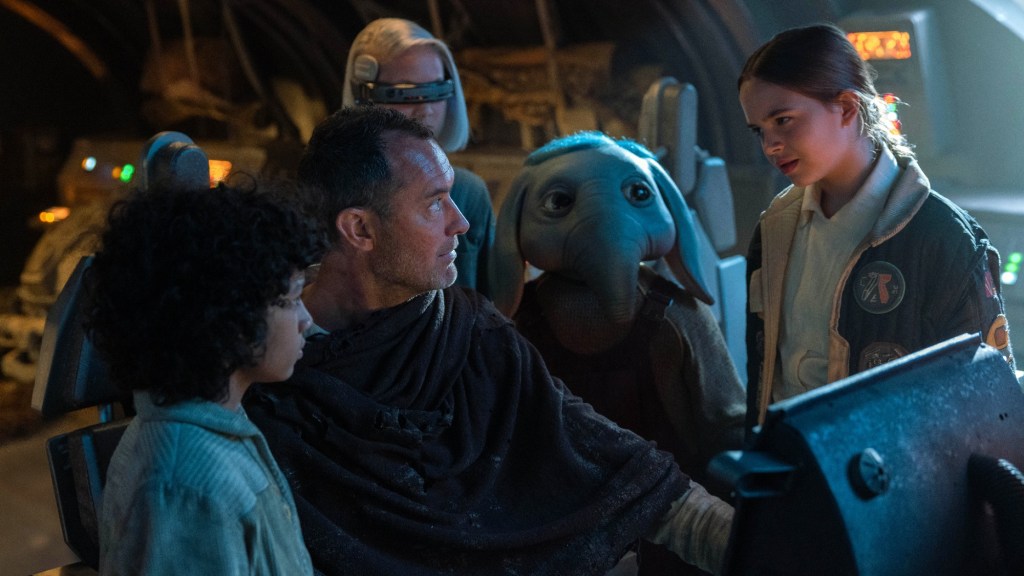
3. Skeleton Crew
Here is an eight-episode romp from MCU Spider-Man filmmaking duo Jon Watts and Christopher Ford that remembers that Star Wars stories are meant to be fun children’s fantasies first and foremost. Few Disney+ series have managed to capture the sense of wonder of George Lucas’ galaxy far, far away like Skeleton Crew, which follows a ragtag group of kids as they accidentally zip away into the farthest reaches of pirate-controlled space. This is a Goonies-inspired adventure that centers friendship and bravery, while rolling out an interesting mystery in a corner of the universe we’ve never seen before. Oh, and the little elephant kid Neel (Robert Timothy Smith) is an all-timer Star Wars character, deserving a spot next to Baby Yoda on the pantheon of adorable space kids.
The show is not without its flaws, of course—like almost every series on this list, the pacing sometimes feels off, with one or two episodes slowing down to a crawl and coming dangerously close to being boring—but strong performances from Jude Law as shifty pirate Jod Na Nawood and an ensemble of kids that mostly feel distinct from one another carry the emotional throughline of the series along nicely. There is also so much to love in terms of classic Star Wars lore in this one, with scenes filled to the brim with fan-favorite aliens from the Original Trilogy (the werewolf guy from the Mos Eisley cantina!) as well as a deeper look at the galaxy’s underworld than ever before, all of which look pretty great on screen throughout. Put all that through the lens of young heroes who are discovering a larger world along with us and you have a show that really is fun for the entire family.
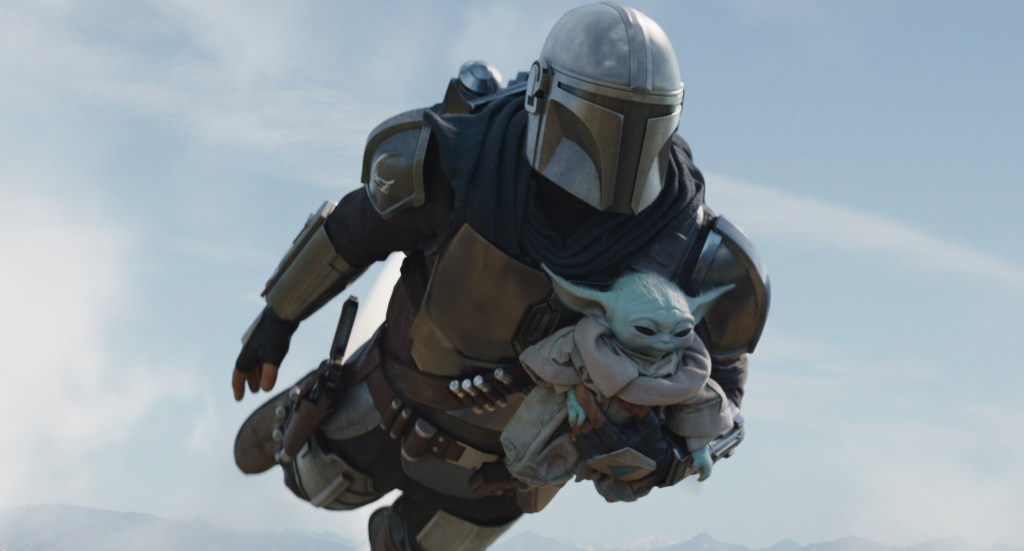
2. The Mandalorian
Three seasons in, and with a feature film now on the way, few would question The Mandalorian‘s impact on the franchise. Not only did Din Djarin’s bounty hunting adventures unlock a whole new era of storytelling for the galaxy far, far away but it also introduced fans to arguably the most popular Star Wars character of the Disney era: the incredibly cute Grogu. Stuffed and animatronic Baby Yodas couldn’t fly off shelves fast enough following the first season, the kind of merchandising frenzy that would make George Lucas crack the rare smile. And Grogu’s a pretty captivating character to boot, a former Jedi padawan lost in space ever since Order 66 and in search of a home. He finds one in the unlikeliest of places: with the bounty hunter who was sent to capture him but is secretly hiding a heart of gold.
Across 24 episodes, including an admittedly weaker third season, we get to watch what is essentially the beginning, middle, and happily ever after (for the moment) of a father and son journey that just so happens to tie in many of the galaxy’s biggest events, such as the liberation of Mandalore and the return of Luke Skywalker. The Mandalorian is not just a heartwarming tale though, it’s also innovative, which should always be one of the key ingredients of a major new Star Wars property.
This was the first TV series to use ILM’s StageCraft tech, better known as the Volume, which allows the show to visit faraway planets like Tatooine and Trask without filming in Tunisia or Croatia or having to use green screen. As a demo for what the tech could do in 2020, it was damn impressive, unlocking new possibilities for TV visuals on a budget. Most of the other live-action Star Wars series on Disney+ have embraced this tech since, but there’s no question that The Mandalorian still does it best.

1. Andor
Tony Gilroy’s vision of an anti-Star Wars Disney+ show feels like it came the hell out of nowhere in 2022. Set years before the events of Rogue One, and starring a lesser known Star Wars character from that film, this underdog of a TV series turned out to be a lesson in what happens when the franchise takes itself seriously. Unapologetically adult and timely, the show’s 12-episode first season throws nostalgia and cheap cameos out of an airlock. Instead, it’s the brilliantly written characters, deft storytelling, and a central message about the sacrifices we must make when staring down the barrel of fascism that drive this stellar series.
At the start of the show, Cassian Andor is not the fully formed Rebel secret agent/hitman we met in Rogue One. A powerful performance from Diego Luna gives us Cassian at his most desperate, a criminal who doesn’t care about the Rebel cause until he lands himself and his impoverished mining town in big trouble with the Empire. While the opening episodes might play a bit slowly for some, it’s all in service of Cassian’s development as a worthy leading man. His journey from crook to radicalized freedom fighter is nothing less than exhilarating, especially in the show’s back half when he witnesses firsthand the true horror of Imperial tyranny inside a secret underwater prison.
To say, Gilroy and his team get the best out of all the actors would be an understatement. Stellan Skarsgard puts in a career-best (one of many!) performance as undercover Rebel Luthen Rael, who is easily one of the best Star Wars characters ever created, full stop. In fact, so many of Andor‘s heroes, villains, and those in between are written with such depth and purpose that it would take a much longer entry to celebrate them all. But we must shout out Faye Marsay as morally gray super-spy Vel Sartha, Denise Gough as the cruel Dedra Meero, Kyle Soller as the absolute slimeball Syril Karn, and Alex Lawther as Karis Nemik, whose story and writings will undoubtedly go on to inspire thousands of future Rebels. Then there’s the big surprise of the season: Andy Serkis as Kino Loy, a character you won’t soon forget and will be left clamoring to see again in season 2. This is simply the best cast ever assembled for a Star Wars TV project. Perhaps the saga as a whole.
Andor breaks from many Star Wars traditions like Brasso throwing bricks at oppressors. It doesn’t rely on Jedi or the Force, it doesn’t lean on easter eggs or winks at the audience, and doesn’t really care about being four-quadrant entertainment. This is a mature spy thriller that dissects the saga’s central conflict and explores all the gray area you don’t see in the movies. This is a heavy but rewarding watch from the Star Wars galaxy, with expert worldbuilding on practical sets that never disappoint. It’s the franchise at its bravest and most sincere.
Check out what’s next for Star Wars movies and TV series here.


